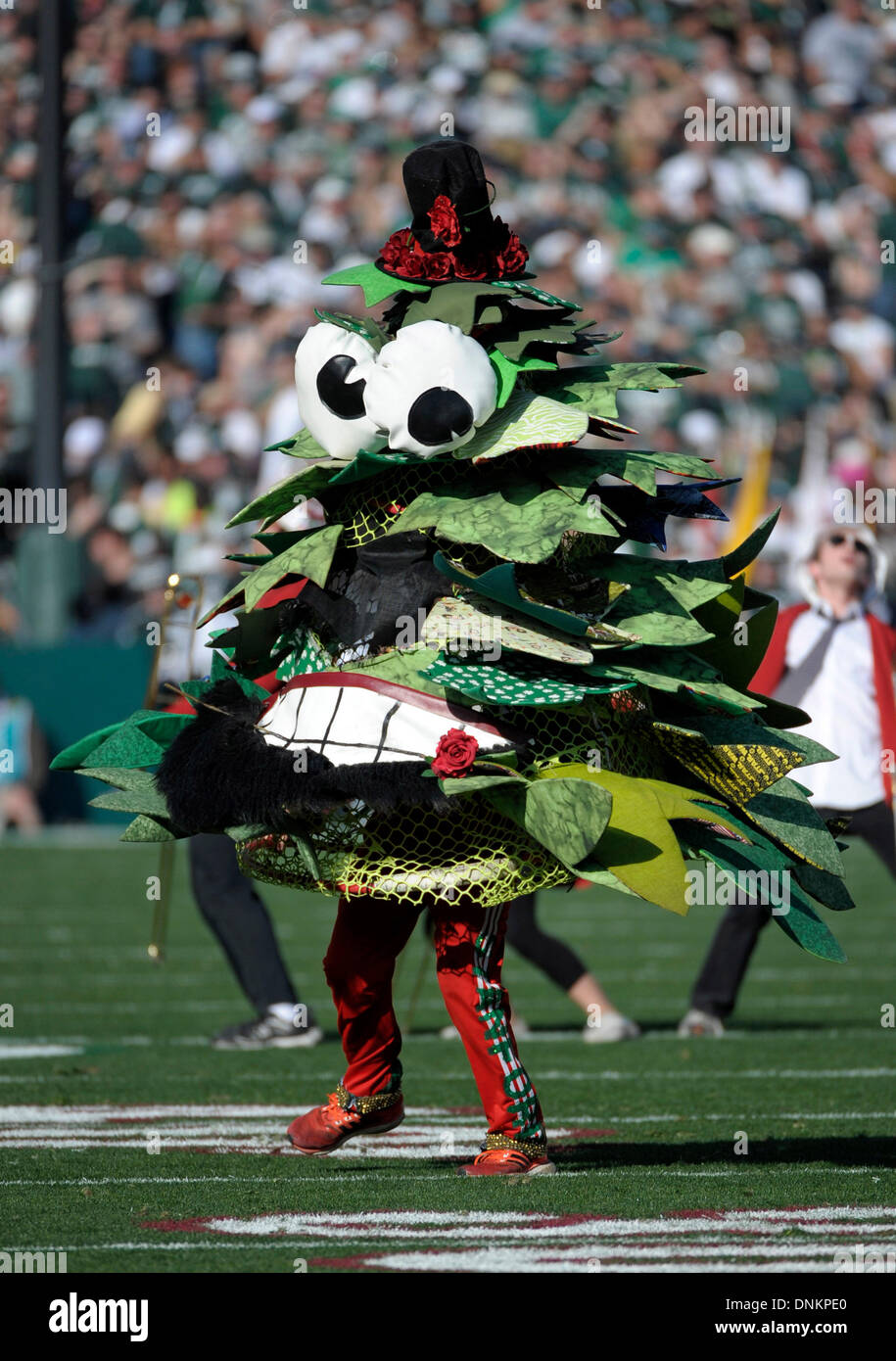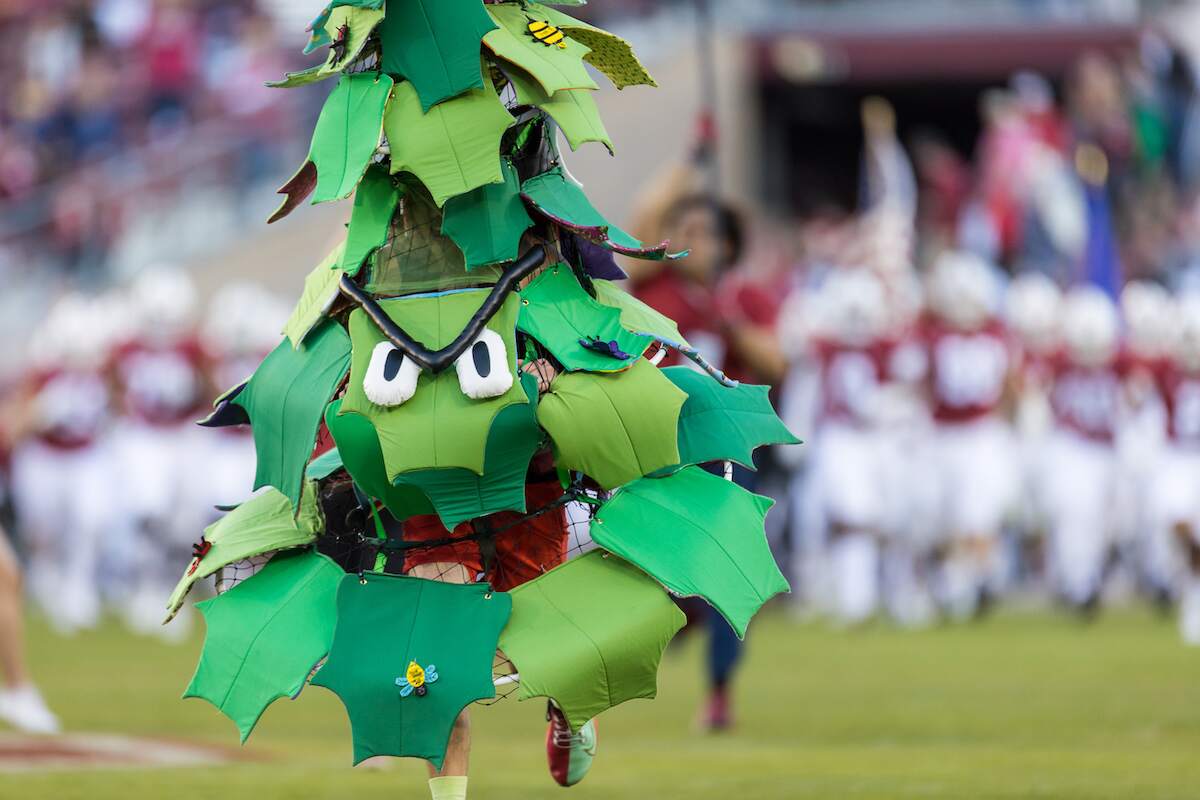Ever wondered what the deal is with Stanford's mascot? Well, buckle up because we're diving headfirst into the fascinating world of Stanford's beloved symbol. It's not just any mascot—it's a representation of tradition, spirit, and pure Stanford pride. So, let's get started and uncover what makes this mascot so iconic!
Stanford University, a name that resonates with excellence and innovation, has a mascot that's as unique as the institution itself. Unlike your run-of-the-mill mascots, Stanford's mascot carries a storied past that adds layers of intrigue to its identity. As we explore further, you'll see why this mascot is more than just a figure at sporting events.
In this article, we'll take you on a journey through the history, evolution, and significance of Stanford's mascot. Whether you're a Cardinal fanatic or just curious about college sports culture, this deep dive will give you all the answers you're looking for. So, let's jump right in!
Read also:Bobbi Althoff Naked The Truth Behind The Viral Sensation And Her Journey
Stanford's Mascot History
Stanford's mascot didn't always look the way it does today. The history of the mascot dates back to the late 19th century, when the university was founded. Initially, there was no official mascot, and the school colors of cardinal red were enough to rally the spirit of the students and alumni. However, as college sports gained popularity, the need for a mascot became evident.
In the early days, a live bear was used as a mascot, which was eventually replaced by a more practical and less dangerous representation. The journey from a live bear to the current mascot is filled with interesting anecdotes and changes that reflect the university's growth and values.
Evolution of the Mascot
Over the years, Stanford's mascot has undergone several transformations. What started as a live bear evolved into a costumed character known as the Stanford Tree. The Tree, which is part of the Stanford Band, is a sight to behold at any sporting event. Dressed in a tree costume, the Tree brings humor and excitement to the crowd, making it a beloved figure in college sports.
But why a tree? Well, it's a nod to El Palo Alto, a historic redwood tree that stands near the campus and is a symbol of strength and resilience. This choice of mascot reflects Stanford's commitment to tradition and its connection to the natural world.
The Stanford Tree: A Unique Mascot
Now, let's talk about the star of the show—the Stanford Tree. This isn't your average mascot. The Tree is a member of the Stanford Band and plays a crucial role in hyping up the crowd at football games and other sporting events. With its quirky antics and energetic performances, the Tree has become an integral part of Stanford's sports culture.
Role in Sports Events
At every game, the Stanford Tree can be seen leading the band, engaging with the audience, and creating an atmosphere of excitement. The Tree's performances are a blend of comedy, athleticism, and pure fun, making it a fan favorite. Whether it's dancing, doing stunts, or interacting with players, the Tree never fails to entertain.
Read also:Isaiah Michael Barnes The Rising Star Whos Changing The Game
Here are some of the things the Stanford Tree is known for:
- High-energy performances
- Comedic routines that keep the crowd laughing
- Engaging with fans and players alike
- Being a symbol of Stanford's unique spirit
Significance of the Stanford Mascot
The significance of Stanford's mascot goes beyond just being a figurehead at sports events. It represents the university's values, traditions, and the spirit of its community. The Tree embodies the quirky, innovative, and inclusive nature of Stanford, making it a perfect fit for the institution.
For students and alumni, the Tree is a source of pride and nostalgia. It serves as a reminder of the fun and excitement that come with being part of the Stanford family. The mascot's presence at events fosters a sense of unity and belonging among the university's diverse community.
Connection to Stanford's Identity
Stanford's mascot is deeply connected to the university's identity. It reflects the institution's commitment to creativity, innovation, and sustainability. The choice of a tree as a mascot aligns with Stanford's efforts to promote environmental awareness and respect for nature. This connection makes the mascot more than just a symbol—it's a statement of values.
Stanford's Mascot vs. Other College Mascots
When compared to other college mascots, Stanford's Tree stands out as one of the most unique. While many universities opt for fierce animals or historic figures, Stanford chose a tree—a symbol of growth, strength, and resilience. This unconventional choice sets Stanford apart and adds to its distinctive character.
Why the Tree is Special
What makes the Stanford Tree special is its ability to connect with people on a personal level. Unlike other mascots that may rely on intimidation or strength, the Tree uses humor and charm to win over the crowd. This approachable nature makes the Tree a beloved figure not just within the Stanford community but also among college sports fans nationwide.
The Impact of Stanford's Mascot
The impact of Stanford's mascot extends beyond the sports field. It plays a crucial role in promoting school spirit and fostering a sense of community among students, faculty, and alumni. The Tree's presence at events creates an inclusive environment where everyone feels welcome and excited to be part of the Stanford experience.
Moreover, the mascot serves as an ambassador for the university, representing its values and traditions to the wider world. Through its performances and interactions, the Tree helps build a positive image of Stanford and strengthens its reputation as a leading institution.
Building School Spirit
School spirit is a vital component of any university's culture, and Stanford's mascot plays a significant role in nurturing it. By engaging with students and alumni, the Tree helps create lasting memories and a strong sense of belonging. This connection is crucial in maintaining the vibrancy and unity of the Stanford community.
Fun Facts About Stanford's Mascot
Here are some fun facts about Stanford's mascot that you might not know:
- The Stanford Tree is part of the Stanford Band and performs at all major sporting events.
- The costume weighs around 20 pounds, making the Tree's energetic performances even more impressive.
- The Tree has appeared on national television and even performed at the Super Bowl.
- There are multiple people who take turns playing the Tree to ensure the costume stays in top condition.
Behind the Scenes
Being the Stanford Tree isn't all fun and games. It requires a lot of hard work and dedication. The performers undergo rigorous training to master the Tree's signature moves and ensure they can handle the costume's weight and complexity. Despite the challenges, the role of the Tree is highly coveted, and many students aspire to become part of this iconic tradition.
Stanford's Mascot in Pop Culture
Stanford's mascot has made appearances in various forms of media, from television shows to social media platforms. Its quirky and humorous nature has made it a favorite among fans and creators alike. The Tree's antics have been featured in viral videos and memes, further cementing its status as a cultural icon.
Media Appearances
Over the years, the Stanford Tree has appeared on popular TV shows and in documentaries about college sports. Its unique personality and entertaining performances have captured the attention of audiences nationwide. These appearances have helped increase the Tree's visibility and solidify its place in pop culture.
Stanford's Mascot and Alumni Engagement
For alumni, Stanford's mascot serves as a reminder of their college days and the fun times they experienced. The Tree's presence at alumni events helps reconnect graduates with their alma mater and fosters a sense of community among them. This engagement is crucial in maintaining strong ties between the university and its former students.
Alumni Events
At alumni events, the Tree often plays a central role in creating an atmosphere of nostalgia and excitement. Its performances bring back memories of college days and help alumni relive the joy and camaraderie they experienced during their time at Stanford. This connection is invaluable in strengthening the university's alumni network.
Conclusion
In conclusion, Stanford's mascot, the Stanford Tree, is more than just a figure at sporting events. It's a symbol of the university's values, traditions, and spirit. From its rich history to its impact on the community, the Tree plays a vital role in shaping Stanford's identity. Its unique personality and entertaining performances make it a beloved figure both within and outside the university.
So, the next time you see the Stanford Tree in action, remember the significance it holds and the joy it brings to everyone around it. If you enjoyed this article, feel free to share it with your friends and family. And don't forget to check out more articles on our site for all things Stanford!
Table of Contents
- Stanford's Mascot History
- Evolution of the Mascot
- The Stanford Tree: A Unique Mascot
- Role in Sports Events
- Significance of the Stanford Mascot
- Connection to Stanford's Identity
- Stanford's Mascot vs. Other College Mascots
- The Impact of Stanford's Mascot
- Fun Facts About Stanford's Mascot
- Stanford's Mascot in Pop Culture
- Stanford's Mascot and Alumni Engagement


